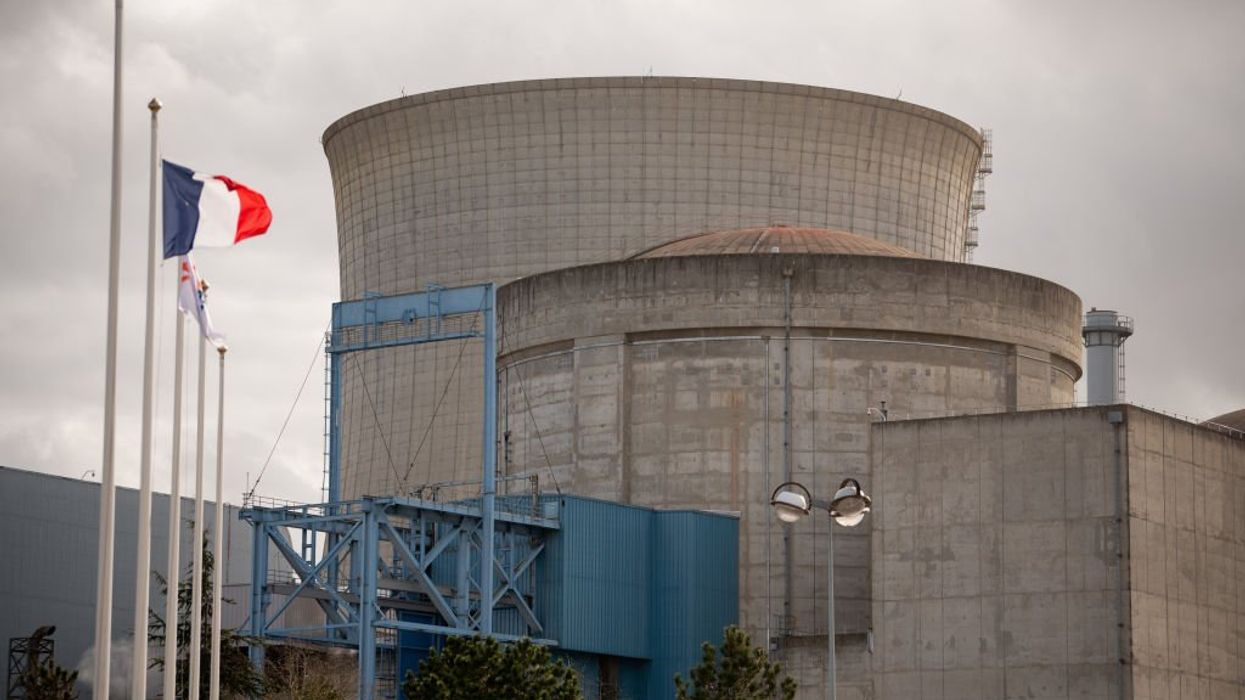
Benjamin Girette/Bloomberg via Getty Images

France is looking to lean more heavily on nuclear power, having apparently realized that a civilized and productive nation cannot reliably run off so-called renewable energy.
The French government will consider legislation in early February that would eliminate renewable power objectives within France's energy code, including targets for reducing energy consumption by way of renovating buildings. France24 indicated that the legislation sets no explicit targets for building renewable capacity.
Instead of mucking around with objectives for renewables, the legislation would have France embrace "the sustainable choice of using nuclear energy as a competitive and carbon-free" source of power.
To this end, the proposed French legislation — touted as a means to ensure "energy sovereignty" — would push for the construction of between six and 14 new nuclear reactors.
Energy Transition Minister Agnes Pannier-Runacher told the weekly newspaper La Tribune Dimanche that the construction of these reactors is necessary to reduce the country's reliance on fossils fuels to 40% from 60% by 2035, reported Reuters.
The U.S. Department of Energy admitted in 2021 that nuclear energy was the most reliable energy source, at least on this side of the Atlantic Ocean. Each nuclear reactor typically generates the same amount of power as 431 utility-scale wind turbines or 3.1 million solar panels.
In addition to being less productive than nuclear and fossil fuels, renewables are unreliable.
A 2021 study published in the journal Nature Communications indicated, "If future net-zero emissions energy systems rely heavily on solar and wind resources, spatial and temporal mismatches between resource availability and electricity demand may challenge system reliability."
The researchers indicated that "the most reliable renewable electricity systems are wind-heavy and satisfy countries' electricity demand in 72-91% of hours ... Yet even in systems which meet >90% of demand, hundreds of hours of unmet demand may occur annually."
Despite the efficacy of nuclear, the French legislation has been met with some criticism.
Arnaud Gosse, a lawyer with the French energy-focused firm Gosse Avocats, suggested in a blog post that the bill, which goes before the French cabinet next month, "weakens France's climate objectives, starting with the objective of reducing our greenhouse gas emissions. The objective would no longer be to 'reduce' but to tend towards a reduction in 'our greenhouse gas emissions.'"
Gosse suggested further to France24 that the bill "a terrible step back."
Jules Nyssen, the president of France's Renewable Energies Union, was unsurprisingly antagonistic of the bill, claiming he was "stunned" to learn it removes renewable targets.
Anne Bringault, an activist at Climate Action Network — an alarmist group that seeks "transformational change in our societies and economies" — told France24, "this is an extremely significant step backwards, and totally inconsistent with European objectives."
RFI reported that France remains among the lowest emitters of greenhouse gas emissions in the European Union largely thanks to the 57 nuclear reactors it has built since the 1973 oil crisis.
Reuters indicated that an increase in French exports of nuclear power to other European nations would likely reduce their dependence on fossil fuels and thereby spare climate alarmists the guilt often associated with winter warmth.
Already this year, France has reportedly overseen a three-year high in nuclear generation. From Jan. 2-9, France was an average daily net exporter of over 12.2 gigawatts of power, with roughly 3 gigawatts going to Germany and another six headed to Switzerland, the U.K., and Italy.
France is not the only European nation waking up to the unreliability of renewable electricity. The Swedish parliament announced last year that in the interest of a "stable energy system," it would have to abandon its goal of "100 per cent renewable electricity production by 2040."
Like Blaze News? Bypass the censors, sign up for our newsletters, and get stories like this direct to your inbox. Sign up here!